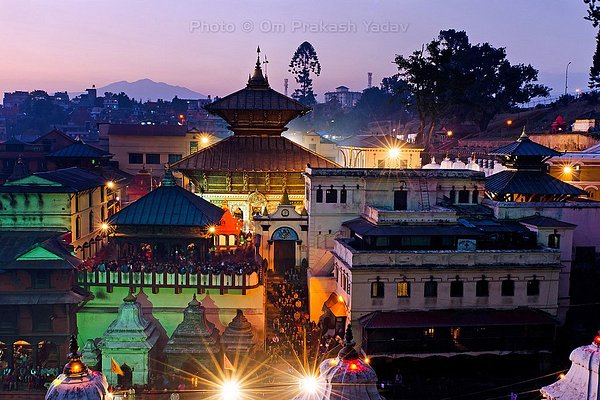

Maha Shivaratri, which is considered one of the most auspicious festivals, is celebrated annually with much fervour and excitement across Nepal. This occasion, the literal translation of which is ‘the great night of Shiva’, will be celebrated on March 1 this year.
It’s believed that while there is a Shivaratri every lunisolar month of the Hindu calendar, the Maha Shivaratri, happens only once every year, in February/March, when winter ends and spring & summer begin.
Out of the 12 Shivaratris observed in any given year, Maha Shivaratri is considered especially auspicious, as it is supposed to be the night of convergence of Shiva and Shakti, which in essence means the male and feminine energies that keep the world in balance. Shiva and Shakti are revered as the embodiment of love, power, and oneness.
There are different legends throughout history that describe the significance of Maha Shivaratri.
One of them claims that Lord Shiva and Goddess Parvati tied the knot on this day. Purusha (mindfulness) is embodied by Lord Shiva, whilst Prakriti (nature) is embodied by Parvati. With the union of both consciousness and energy, it facilitates creation.
Another story says, during Samudra Manthan (a mythical event in Hindu literature), a pot emerged from the ocean which consisted of poison. All the Gods and demons were terrified that this will destroy the entire world and so, Gods went to Lord Shiva for help.
To protect the entire world from the evil effects, Shiva drank the entire poison and held it in his throat instead of swallowing it. Due to this, his throat became blue and hence he came to be known as ‘Neelakantha‘ (‘Neel’ meaning blue, ‘Kantha’ meaning throat).
Maha Shivaratri is observed in several places of Nepal but the festivities of Kathmandu’s Pashupatinath temple is the one that holds the greatest significance.
On this auspicious day, followers and devotees of Shiva fast and special rituals are performed in several temples of Shiva across the world. They offer milk to the ‘Shivaling’ and pray for ‘moksha’ (eternal liberation).
Several devotees pray the whole night, chanting mantras in praise of Lord Shiva. Besides the celebration of the marriage of Shiva and Shakti, unmarried women pray and perform fasts on the day to wish for a partner as compassionate as Lord Shiva. On this day, in various temples, fairs and cultural programs are also organized.
It is believed that people who perform puja, fast, and offer prayers to Lord Shiva are blessed with good luck. Many people also think that Maha Shivaratri fast reminds devotees that pride, ego and falsehood only lead to downfall. All in all, this is a day when positivity wins over negativity.